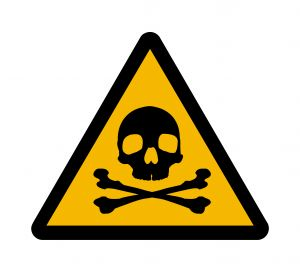When news reports began covering the use of synthetic bath salts, most people found themselves confused. Over time, it became clear that the recreational drug had nothing in common with a relaxing soak in the tub. Our San Francisco bath salts law firm understands that the innocent-sounding substance is highly dangerous, both to the user and to innocent victims who may encounter someone high on the drug.

There have been countless headlines involving bath salt use. One story currently receiving national attention involves a woman from central Pennsylvania who had just recently giving birth. The Altoona Mirror, a paper local to the incident, carried the Associated Press report. On June 17, just two days after delivering her child, thirty-one year old Carla Murphy allegedly smoked bath salts while she was still on the maternity ward at Altoona Regional Hospital. According to the report, while experiencing the effects from the drug, Murphy stripped naked, rolled around on the bathroom floor, and fought with staff attempting to subdue her. Other news sources report Murphy assaulted a nurse as well as a responding police officer. A search uncovered bath salts among her belongings at the hospital and also in her home.
Sadly, this is not even the most shocking report linked to the substance in recent months. In May, frantic calls were made to police who responded and found a naked man trying to eat the face of a homeless man. The attack occurred in Miami, in broad daylight, and the attacker is believed to have been high on bath salts. The attacker was shot by police after failing to respond to commands to stop. Amazingly, the victim survived but he has been severely disfigured.
According to WebMD, the exact content of the drug known as bath salts varies. For some time, prior to recent legislative efforts, manufacturers were able to sell the substances openly in mini-marts and smoke shops by using the innocuous-sounding name and marking them “not for human consumption.” Use skyrocketed in recent years. In all of 2010, poison control centers in the U.S. reported only 236 calls involving bath salt use. In just the first two months of 2011, more than 250 calls were placed about the drug. Methods of consumption vary but can include snorting or shooting the drug or mixing it with food or drink.
Bath salts act as a stimulant. Users may experience agitation, hallucinations, increased heart rate, chest pains, paranoia, and suicidal tendencies. Reports indicate users may feel invincible and can believe they possess superhuman strength. Increased body temperature is common, causing the user to feel like they are burning up from the inside. Since use is relatively new, there is not much knowledge about long-term effects and studies have focused on short-term effects, especially in cases of acute toxicity. Internet clips, including videos taped from inside police vehicles, abound and show the scary results of bath salt use. Tests for the drug are limited, so both medical personnel and law enforcement often rely on self-reporting or on a witness to the consumption.
Legislative efforts to ban the manufacture, sale, and consumption of bath salts are hampered by the fact that there are many different man-made formulations. California law does ban the sale of some forms of bath salts. Federal laws also target certain chemicals used in bath salt products, but many believe additional measures are needed at all levels.
If you have been the victim of an incident involving bath salts in San Francisco or our other Northern California communities, please call our team. We are prepared to help you obtain all the monetary compensation allowed by California law.
Additional information on bath salts can be found on WebMD and DrugFree.org.
 San Francisco Injury Lawyer Blog
San Francisco Injury Lawyer Blog

